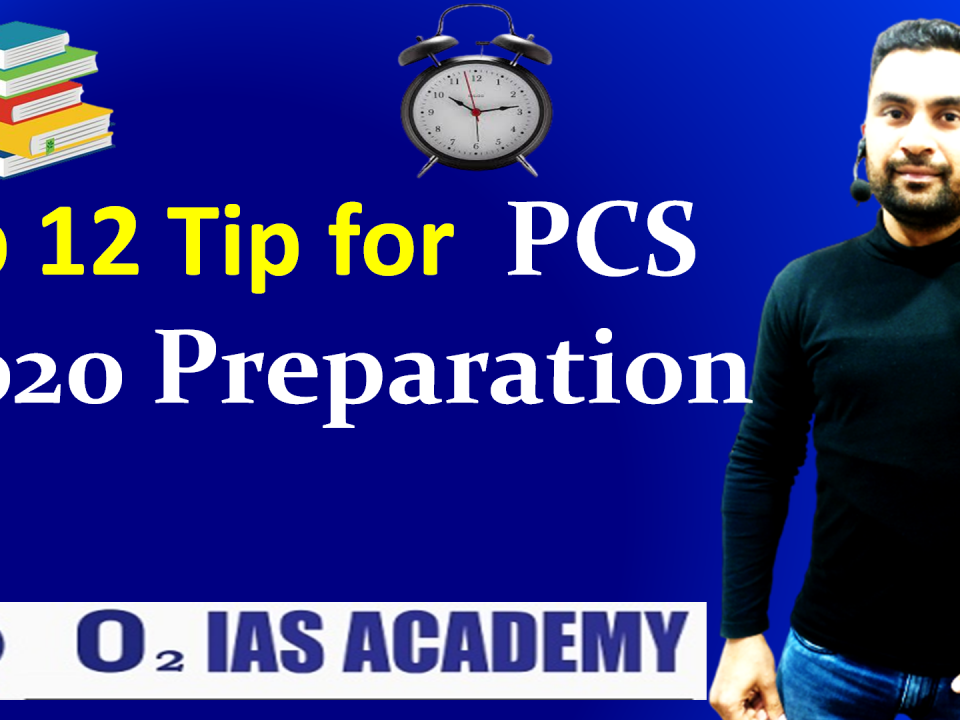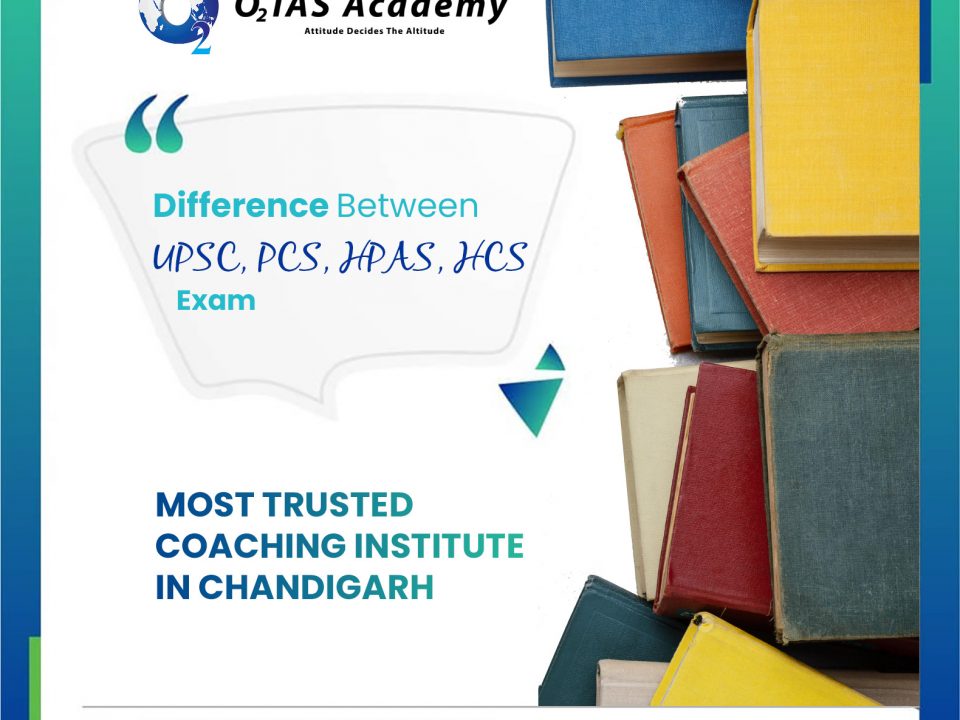The Art of Newspaper Reading for UPSC Preparation
UPSC Civil services exam is considered as one of the toughest exams to the crack in the world. With its daunting syllabus spanning varied fields, students have many doubts regarding its varied aspects. And in today’ blog post we’ll be discussing one such important aspect of frequently asked questions: newspaper reading. So let’s explore whats and hows of newspaper reading. We at O2 IAS Academy has added Newspaper Analysis in the curriculum in our IAS Coaching in Chandigarh
Before we begin addressing how to read the newspaper and make notes out it let us first understand WHY to read the newspaper for UPSC civil services exam Preparation. Firstly, the importance of reading the newspaper has increased tremendously in the past few years for the Civil Services aspirants. Since there has been an increasing trend of current affairs based questions in all stages of UPSC examination:
- Pre
- Mains
- interview/ Personality: mainly current affairs based
Secondly, newspaper reading is a must for any citizen who wishes to remain well informed about the world and its happening. It is a necessary exercise for grooming and building up of general knowledge.
Lastly yes indeed there are always substitutes – other newspapers, magazines, current affairs capsules, mobile apps and so on. But 1 hour reading of ‘The Hindu’ newspaper as a daily exercise for all aspirants has multiple benefits. Most important of the benefits would be the ‘pictorial memory’ which would be of immense help in Prelims, Mains, and Interview.
Also, there would be a lot of improvement in your vocabulary and communication skills.
Now, the next question: Which newspaper should I read for Civil Services prep?
There are numerous newspapers available in the market these days but from the examination perspective, The Hindu and The Indian Express are best suited. Both these newspapers cover entire news very well from the national perspectives, international perspectives, science & technology and other issues in a very holistic manner. Students can choose any one newspaper of their liking from these two. Reading newspaper is a crucial and indispensable part of IAS preparation and must never be skipped.
Before we start our discussion on how to read the newspaper, here are some important points one must bear in mind:
- Always have the syllabus in front of you.
- Have the past question papers with you and keep referring to them, to understand what kind questions are asked in each stage of UPSC examination.
- Understand the ‘issue’ rather than just focusing on reading numerous points from different resources.
- After identifying the issue, take down notes topic wise and not date wise.
Know the important websites to be referred to and when necessary to supplement the newspaper.
Websites of various ministries
Wikipedia
- Do not spend more than 1 hour in the newspaper. Many students end up spending 3-4 hours merely on the newspaper. It does not help.
- What helps is a quick reading of the newspaper jotting the important point. This will help you revise current affairs later
What should I read in the newspaper?
- Understand and memorise the syllabus for both pre and mains examination
Pre perspective
- Events
- Government policies
(Objectives of the policy, under which ministry /department / it operates, any special feature of the policy, who are the members (If it’s an organisation .eg. Inter State council), any constitutional provisions related to it)
- Schemes/initiatives
- IR and national bodies/org/institutions
- Scientific, technological, defence and other major developments
Mains perspective
- Major developments eg schemes, issues, controversies, initiatives etc in areas of GS I.II, III, IV
- In-depth analysis of issues from all dimensions
Tips for Effective and Faster Reading of the ‘The Hindu’ newspaper
- Front page: read all major developments apart from political issues
- City/state/neighbourhood page: read any major decision or policy development apart from local and regional news
- Nation/news: read syllabus related news and issues, not the political and crime-related news. Focus on Supreme Court and High Court verdicts, Parliamentary debates, Government orders etc. here.
- Editorial Page (Usually Page 8): This is the most important page of ‘The Hindu’ newspaper from UPSC Exam perspective. Carefully read the two ‘editorials’ given on the left margin. Then move to the ‘Lead‘article. This usually would be an excellent analysis of a current issue. Finish this page, by reading the ‘Letters to editor‘as this would give different opinions on the same issue. But don’t get biased. Note: Try to finish everything up to this page within 30-40 minutes.
- Perspective Page (Usually Page 9): This is where you see the op-ed. An ‘op-ed’ (originally short for “opposite the editorial page”) is a written prose piece typically published by a newspaper or magazine which expresses the opinion of a named author usually not affiliated with the publication’s editorial board. ‘The Hindu’ names these articles as ‘comment’. Read this to get a different perspective on current issues.
- Page 10-11: These pages deal with news in general. There is no need to go deep into political news or issues, just have a superficial knowledge of what is happening around.
- World (Page 12): This page would be useful for the International Relations topic which is part of UPSC syllabus. Read-only syllabus related news of direct importance for India or the world, not internal issues
- Business (Pages 13-14): Focus on trends, growth parameters and issues here. Read issues connected with Fiscal and Monetary Policy. only major events, organisations, economic developments, not minor business, corporate sector or PSU related news. If you find socio-economic issues related to women, education or health, read in-depth.
- Sports Page and Life Page: Ignore. Sports news are not generally asked in UPSC CSE. Thus the read-only major development of sports bodies, do not read the rest of the news. But issues like sports body reforms, e.g. Lodha panel recommendations etc. need to be studied in details
The above-mentioned guidelines apply to the Indian Express newspaper as well.
Things to do after reading the newspaper:
- Divide your current events preparation into major heads like-
International Relations, Environment & Biodiversity, Personalities and Awards, Government Policies and Schemes, International Organisations, Economic Policies, Science and Technology etc.
- While reading the editorial, identify the issue first. Then find out points in favour and against it. Please understand the editorials have a bias towards one opinion. So, it is your duty to identify points, both for the topic and against the topic.
- International– Do not read all the international news in detail. Follow events which have marked impact on India or which lead to important outcomes.
- Ecological issues– Must prepare thoroughly. One must prepare from Scientific/ geography point of view too (for prelims). As it’s a frequently asked mains and pre topic so, try to look for good articles, verdicts, international agreements, govt actions, judicial pronouncements, technical reading material related to Ecology.
- Note down any issue being discussed in the Government departments/ministries. Focus on the pros and cons of the issue .example -Linking of Rivers, water conservation, etc.
- Social issues– Only do selective issue based reading like developments related to gender inequality, poverty, child labour, trafficking, etc.. Identify social issues /challenges facing the society and then understand its pros and cons and also note down the recent incidents. These can be quoted in mains and interview answers. Example -caste riots, moral policing, restriction on freedom of speech etc.
- Masala news of regional character– like a spat between Delhi govt and centre may not be relevant. But the issue of Centre-state relations is important. Eg. Competitive federalism, cooperative federalism-related policies and schemes.
- Just reading paper doesn’t help. You must internalise the issues, and understand its core concepts and issues. E.g. there is no point in reading the business news if you don’t know what is Sensex, inflation, CPI, repo rate etc and how these concepts apply in practice. Try to understand than frivolous reading for the satisfaction of having read it.
- Notes should be to the point and very concise. There is no point in making notes if you are copying the whole editorial from the newspaper into your copies. The whole point is that you should know 5-6 points about each topic/issue so that you can write a 10 marks answer. You don’t have to become an analyst.
- Your interest must not dominate your goal. You may be interested in sports, but reading that section would not be considered important from the examination point of view. Therefore, you should not read it in depth and if you do so please do not include the time spent on it as the time of the study;
- Lastly, there are no shortcuts. Try to keep a time frame for newspaper reading every day and decide in advance the strategy to revise and make notes.
In the end, I would say that no one can crack Civil services exam without reading at least one newspaper Daily. Just because we have special newspaper analysis class, O2 IAS Academy is among Best Coaching centres for IAS Coaching in Chandigarh


